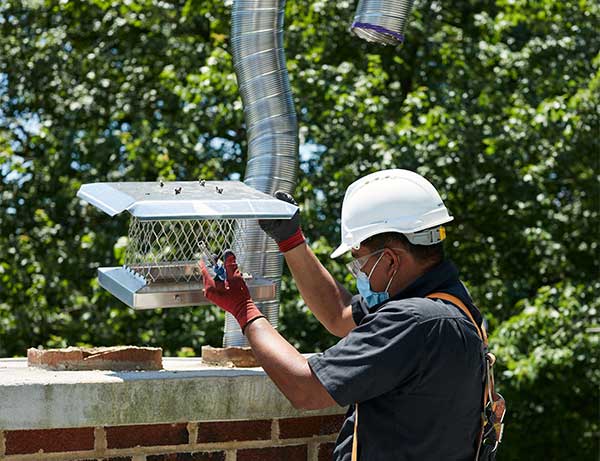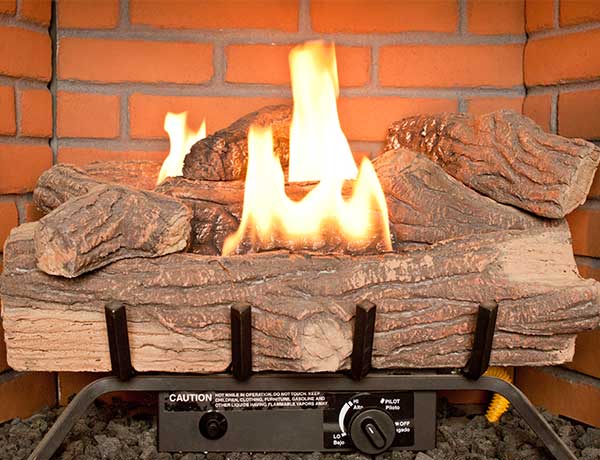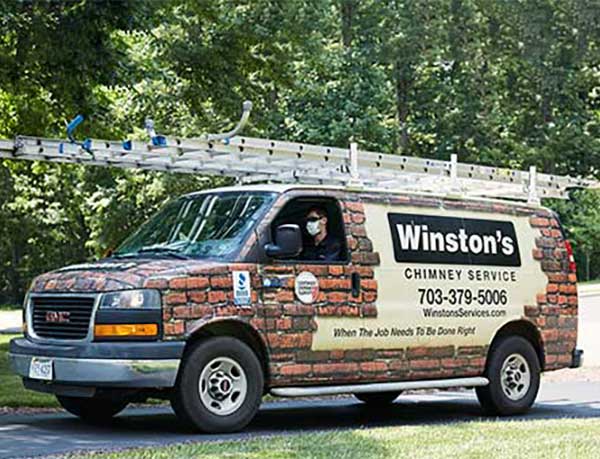As summer presses onward, we turn our attention to preparing for the shorter days and chilly air of autumn. And those cool nights in front of your warm and cozy gas fireplace almost make the cold short days of fall and winter worthwhile.
None of that matters, however, if your fireplace isn’t working quite right. Like any appliance, gas fireplaces can experience problems and issues that require some maintenance and attention. If not dealt with, these problems become costly expenses that can be a danger not only to your bank account, but to your property and family, as well.
At Winston’s Chimney Service, we take the health and safety of our clients very seriously. Check out our list of common gas fireplace problems, why they are dangerous, and some tips on addressing those issues.
Common Gas Fireplace Issues
One of the most common problems in gas fireplaces is when dust, dirt, and debris are allowed to accumulate within the various parts of the system. One of the biggest reasons people choose to install a gas fireplace over a wood-burning one is because it burns so much cleaner – and there’s no messy ash that needs to be dealt with.
Unfortunately, many people come to believe that this means a gas fireplace never needs cleaning. And this couldn’t be further from the truth.
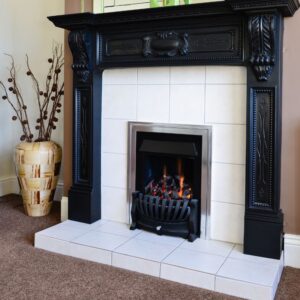 Just as you would regularly clean your shelves, ceiling fans, counters, and other appliances, so too, should you clean your gas fireplace. Over time, dust collects on the different components such as the burners, pilot light assembly, and gas logs. In addition, debris often finds its way into your ventilation system – and sometimes onto your burners – and it can also collect in and around your pilot light assembly.
Just as you would regularly clean your shelves, ceiling fans, counters, and other appliances, so too, should you clean your gas fireplace. Over time, dust collects on the different components such as the burners, pilot light assembly, and gas logs. In addition, debris often finds its way into your ventilation system – and sometimes onto your burners – and it can also collect in and around your pilot light assembly.
This dust, dirt, and debris can wreak havoc on the efficiency of your gas fireplace. It can mess with the rate at which gas is provided to your flames, causing incomplete combustion, and it can cause inefficiencies in heat output, as well. In fact, when debris collects near your pilot light, it can have problems staying lit.
Another common problem in gas fireplaces is soot buildup on the burners and glass door panels. Again, just because gas burns cleanly compared to wood, it doesn’t mean that there are no chemical by-products that come off of gas fueled flames. These by-products can build up on your glass doors and keep heat from properly escaping. This can overheat the components inside the fireplace causing dangerous issues, including increased risk of home fires.
Whenever there is dust, dirt, debris, or soot present, you may smell funny or foul odors coming from your fireplace. These smells can range from mildew smells caused by rotting debris in your chimney or ventilation system to burnt smells that come from charred debris on your gas burners. One very dangerous smell would be a sulfur-like smell that indicates a leak in the propane or natural gas that supplies the fireplace.
Dangers of Damaged Gas Fireplaces
Any problems with your gas fireplace are almost always minor and inexpensive to fix if you are watching for them and notice them in a timely manner. However, if ignored, they have the potential to create dangers for your home and the health of its residence.
Carbon Monoxide
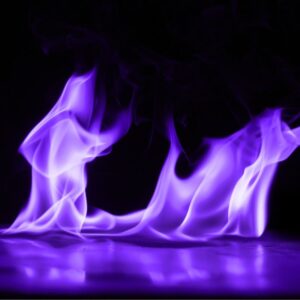 When the supplied gas isn’t fully vented or combusting it can cause the accumulation of carbon monoxide. This is especially true if your ventilation system is blocked and not working. Carbon monoxide is odorless and invisible making it hard to notice. One indication of poorly combusting gas is flames that are bright orange and yellow. Your gas fireplace, when combusting properly, should produce blue flames with a yellow tip.
When the supplied gas isn’t fully vented or combusting it can cause the accumulation of carbon monoxide. This is especially true if your ventilation system is blocked and not working. Carbon monoxide is odorless and invisible making it hard to notice. One indication of poorly combusting gas is flames that are bright orange and yellow. Your gas fireplace, when combusting properly, should produce blue flames with a yellow tip.
Carbon monoxide is a dangerous gas because it is toxic to humans. Last year, over 100,000 people were treated for carbon monoxide poisoning. In fact, there were hundred of reported deaths due to this toxic gas. Winston’s Chimney Service suggests that you install a carbon monoxide detector just to make sure that the levels of the gas in your home don’t exceed safe volumes.
Gas Leaks
Another thing you should remain on the lookout for are gas leaks. These can occur when your pilot light isn’t lit, your thermocouple malfunctions, or your gas line is cracked. Natural or propane gas is infused with a sulfur smell that indicates that it is present. If it is, your house is at risk for fires and explosions. Immediately open windows and doors, leave your house, and call 911 and your gas company to report the leak.
Book With Us Today
Now that you know what to look for, you should know what your best course of action is to avoid major problems – booking regular services with us. At Winston’s Chimney Service we have trained and licensed professionals that are skilled at spotting problems before they start. Scheduling regular inspections and maintenance with us will keep your fireplace working all fall and winter allowing you to enjoy your fireplace with the assurance that it is safe and sound.
Our service techs not only help prevent problems but can help you solve problems that have started. They can help install, repair, replace, and clean all parts of your chimney and fireplace systems. In fact, they can even fully install gas fireplaces, including the gas lines that supply it.
Call today to schedule your consultation – or book with us online – and get your fireplace ready for the fall burn season ahead.
